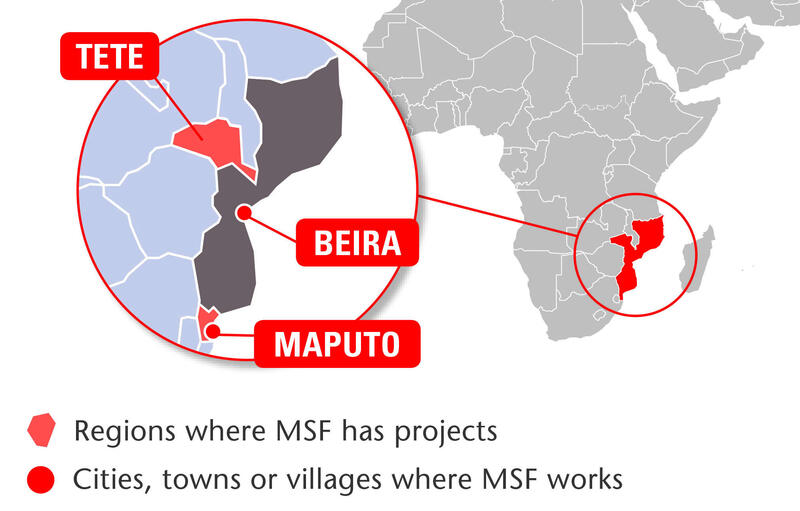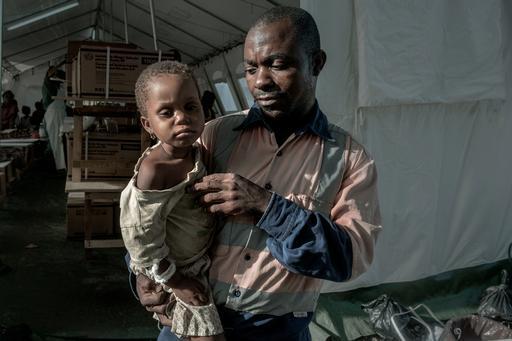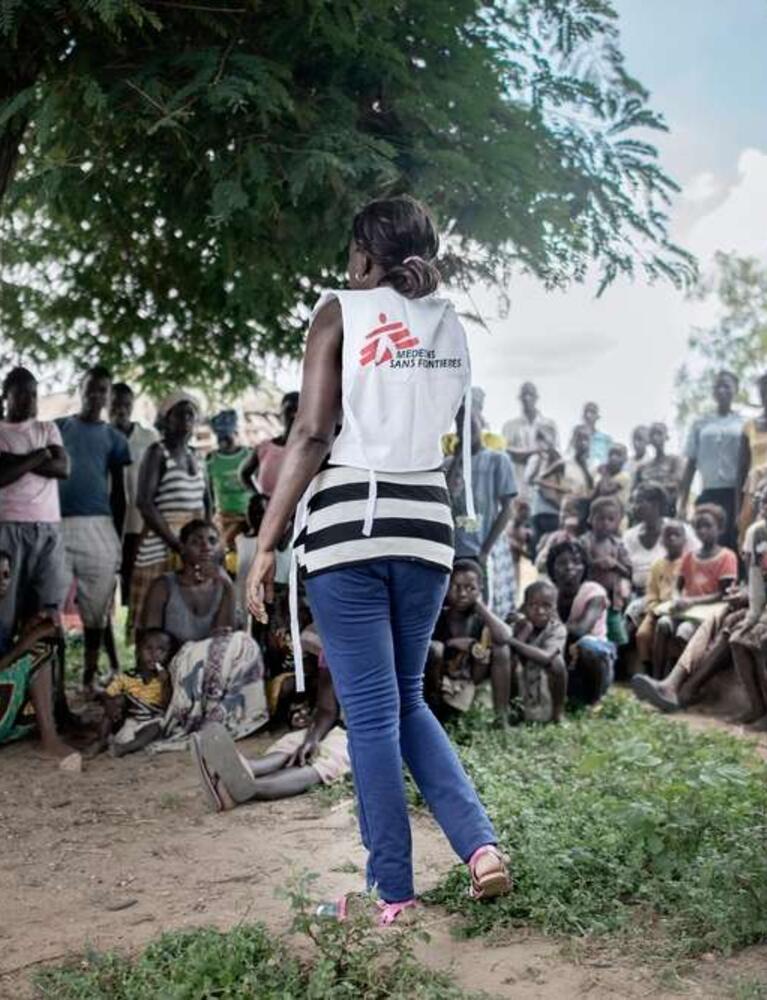The discovery of gas fields off Mozambique's coast in 2011 is set to transform the economy of one of Africa's poorest nations.

But despite recent economic growth, more than half of Mozambique's 24 million people continue to live below the poverty line.
In 2015, the country declared itself free of landmines - a legacy of the civil war.
Médecins Sans Frontières/Doctors Without Borders (MSF) has worked in the country since 1984, responding to the civil war and its after-effects, and epidemic diseases.
Patient story
Manuel Costelo, 47, in an MSF cholera treatment centre in Tete city. Two of his five children are in the centre with him.

“During the night my children started showing signs of illness, so I brought them here right away, I didn’t trust the other healthcare centres.
"In my village many people have heard of this problem and in my family we have all been affected: me, my wife, and our children; three of them have already been discharged, and I’m here to watch over the other two.
"MSF saved all of our lives. I’m sure we’re using clean water at home; we take it only from the public pump. So I don’t know why we’re getting cholera. It just can’t be because of a lack of hygiene. We’re careful, but still, we’re getting sick. Without MSF, we’d all be dead.”
[[Country-Facts]]
MSF's work in Mozambique: 2015
In Mozambique, MSF continues to work with the Ministry of Health to develop innovative strategies to combat HIV/AIDS and tuberculosis (TB), and to respond to emergencies such as cholera epidemics.
Despite adopting an ambitious acceleration plan to tackle HIV/AIDS in 2013, Mozambique is still struggling to deal with the epidemic; 11.5 percent of adults living in the country have HIV, and worryingly, the number continues to grow, in part because of structural problems such as shortages of health staff and a recurrent lack of essential medicines.
MSF is providing a wide range of services, from technical and specialised medical care for patients with advanced stages of AIDS to strategies enabling stable, healthy HIV patients to access their medicines more easily.
[[Article-CTA]]
HIV and TB care in Maputo
In the capital Maputo, MSF focuses on HIV/AIDS patients who need specialised care, including those who have failed antiretroviral treatment or are suffering from co-infections such as multidrug-resistant TB (MDR-TB), viral hepatitis or cancers like Kaposi’s sarcoma or human papillomavirus.
Comprehensive care is also provided to MDR-TB patients and HIV-infected women and children. In 2015, MSF provided viral load monitoring to 28,394 patients.
‘Corridor project’
MSF scaled up its activities in the ‘corridor project’ that was started in 2014 along the commercial route linking the busy Beira harbour to the mining area of Tete province.
This year, it provided testing for HIV and sexually transmitted infections to 967 long-distance truck drivers and 548 sex workers, a particularly vulnerable group with an HIV prevalence of 55 percent.
Cholera is endemic in Mozambique, and there were several exceptionally large and unrelated outbreaks in the centre and north of the country in 2015. MSF teams in Tete and Zambezia provinces treated a total of 416 patients.
Find out more in our 2015 International Activity Report



